大根(だいこん)は消化(しょうか)にいい( )言われている。a. が b. と c. は d. を 消化(しょうか) = digestion Today’s expression is the quote marker と +…
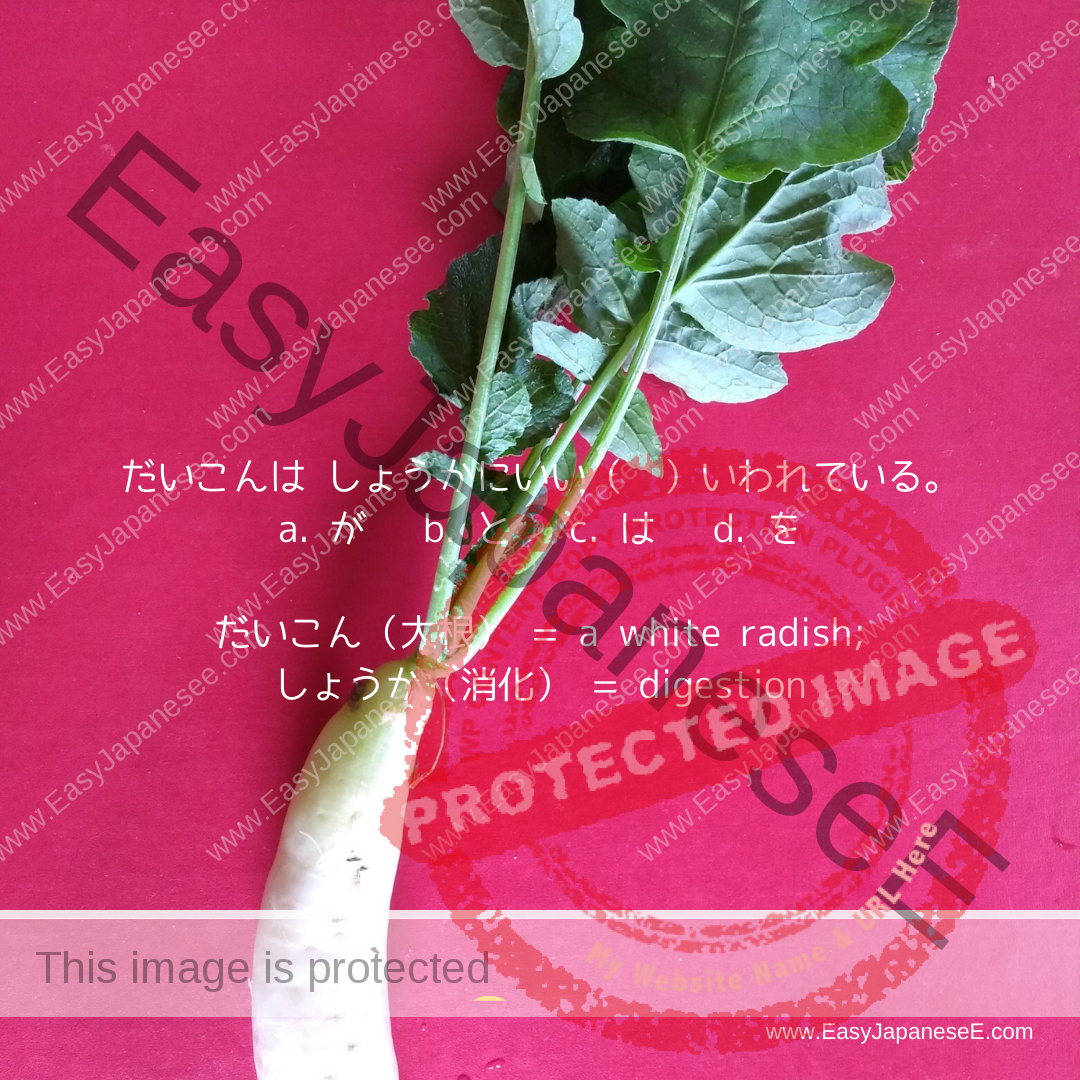

大根(だいこん)は消化(しょうか)にいい( )言われている。a. が b. と c. は d. を 消化(しょうか) = digestion Today’s expression is the quote marker と +…

ちゅうがっこう (1) えいご(2) すうがく(3) べんきょうしました。a. が b. で c. と d. に e. や f. を The intended meaning is:…
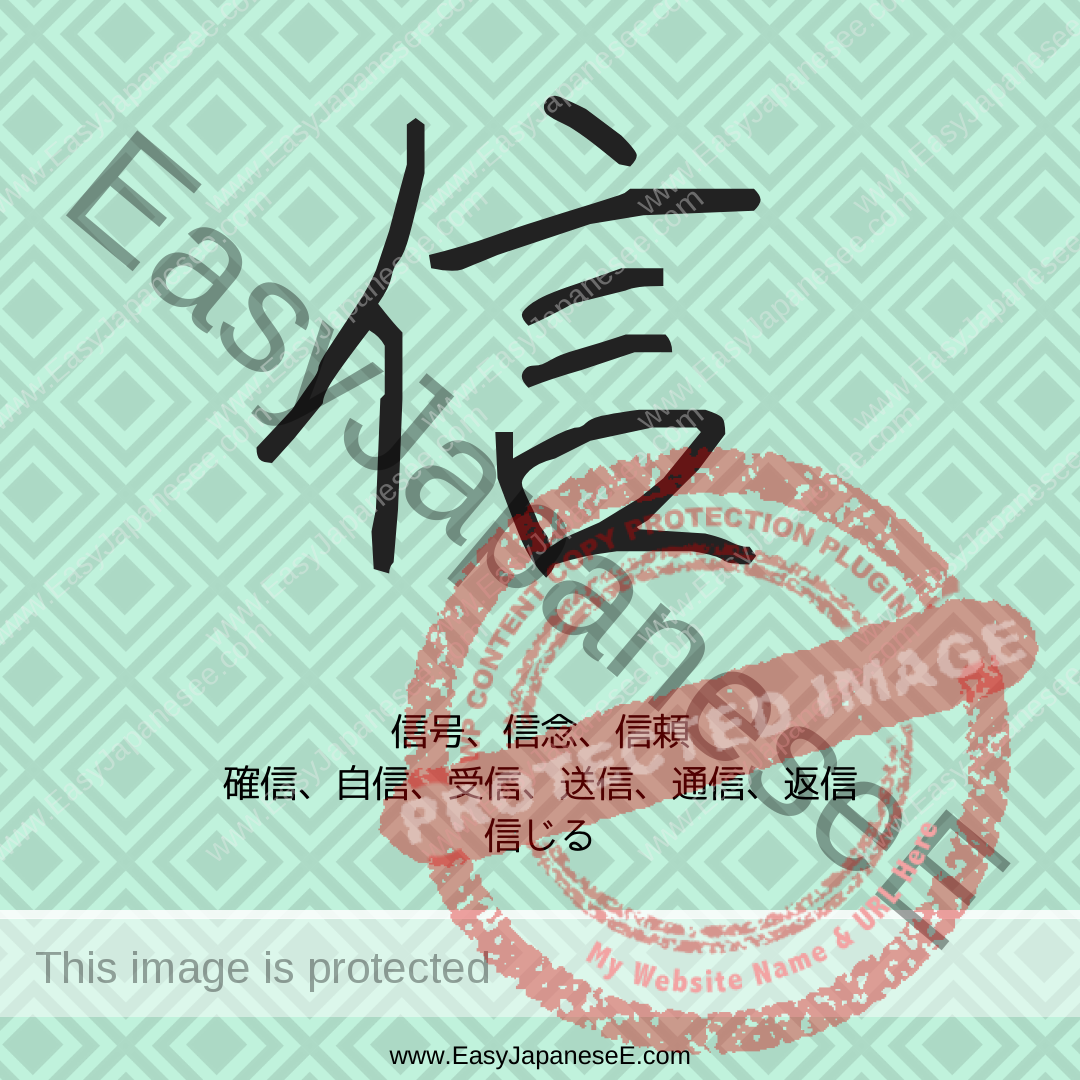
This week’s #kanji is a compound ideograph, #信. It is a combination of 人 (a person) and 言 (words, speech).…
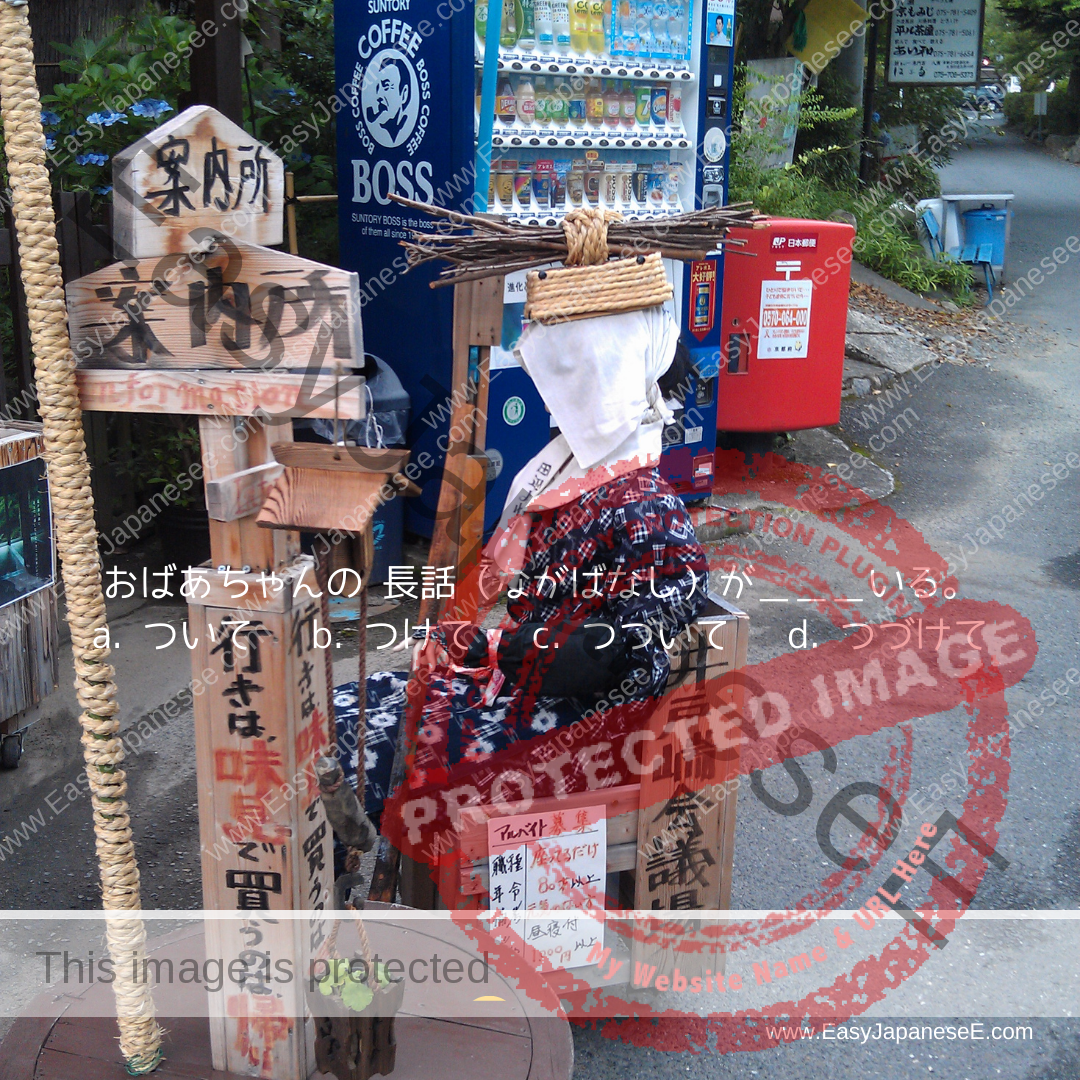
おばあちゃんの 長話(ながばなし)が___いる。a. ついて b. つけて c. つづいて d. つづけて The intended meaning is “Grandma’s long story is still going” and…
![[verb stem]+続(つづ)ける](https://www.easyjapanesee.com/wp-content/uploads/2020/10/201015-~つづける.png)
a. 父(ちち)は50年間(ねんかん)このラジオを聞(き)き__。a. ついた b. つけた c. つづいた d. つづけた The intended meaning is “My father kept listening to this radio…

When will you most likely hear “あの先生はやさしいと言ってもいい”? a. When the teacher is absolutely nice.b. When the teacher is rather nice.c.…

あの みせ ( 1 ) デザート ( 2 ) アイスクリーム ( 3 ) たべましょう。a. が b. で c. と d.…
![[past plain verb] + ばかり](https://www.easyjapanesee.com/wp-content/uploads/2020/10/201012-ばかり.png)
ばかり has many meanings depending on how it’s used but if it’s used in the form of [plain past verb] + ばかり, that means “to have just done ~”
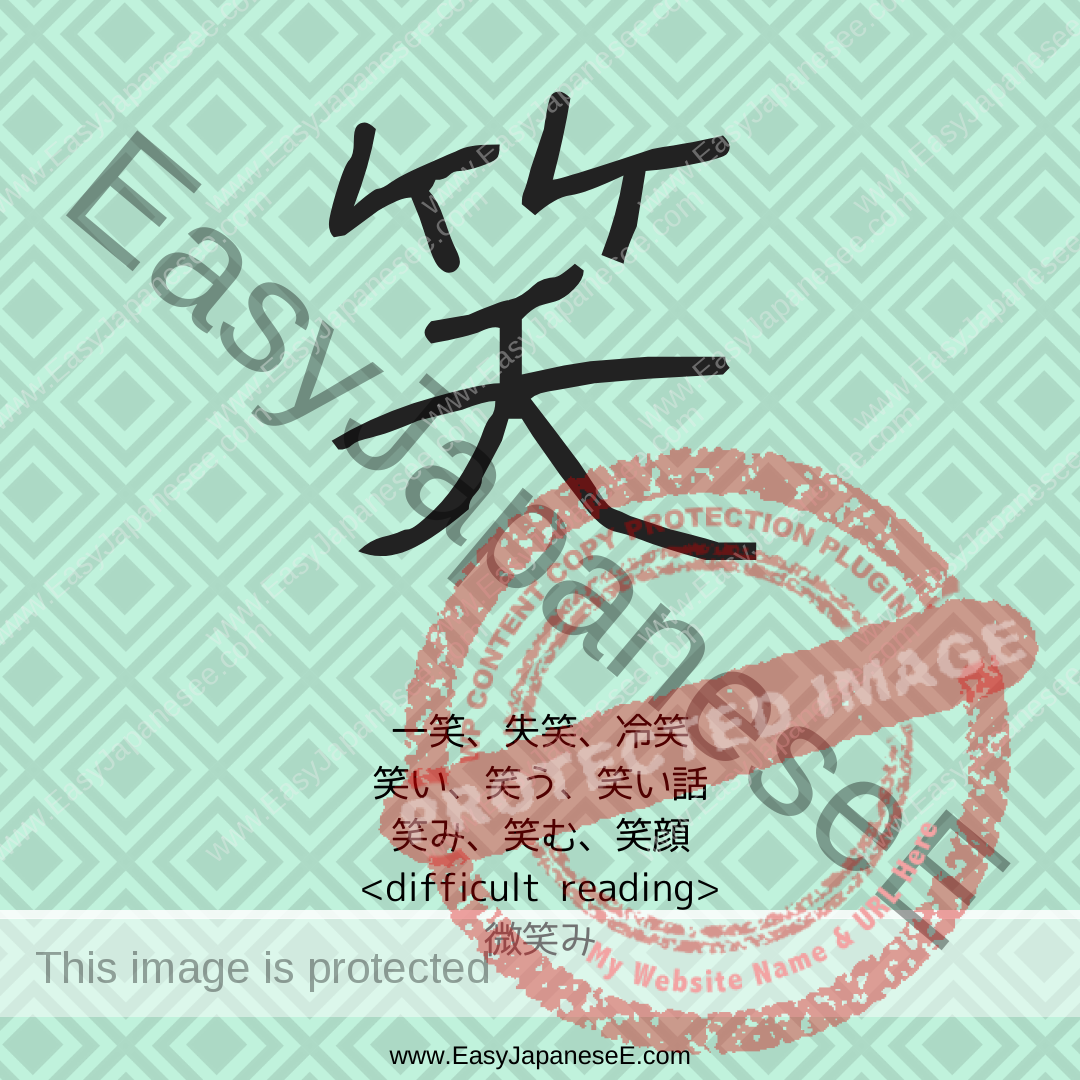
Today’s #kanji is 笑, which is made of its semantic element of #たけかんむり(竹) and its phonetic element of 夭, although 笑 and 夭 do not share a sound in modern Japanese
![[verb stem] + 方(かた)](https://www.easyjapanesee.com/wp-content/uploads/2020/10/201008読み方.png)
[verb stem] + かた means “how to ~” or “the way (a person) do ~.” One thing worth while remembering is the particle before [verb stem] + かた is usually の, not を.
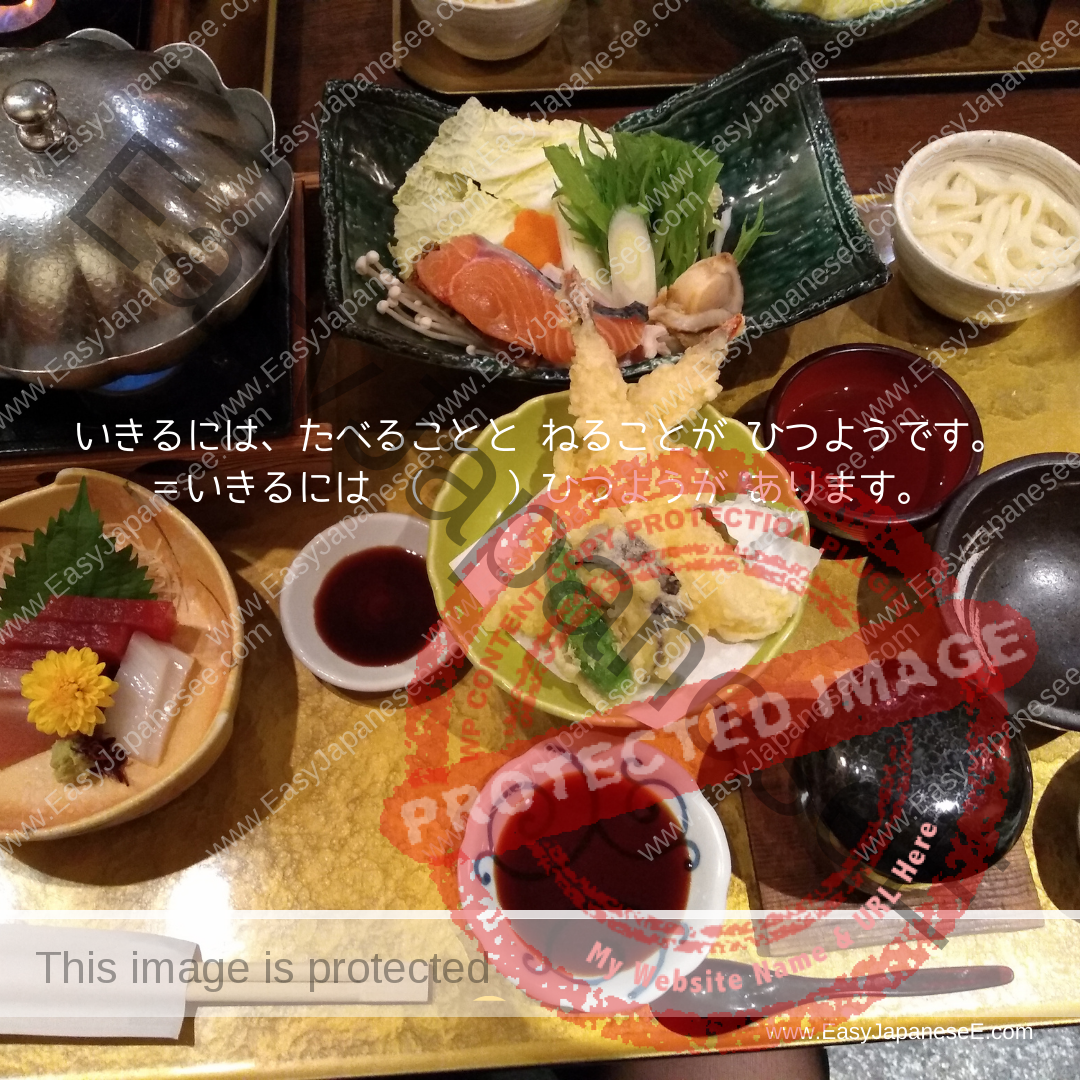
いきるには、たべることと ねることが ひつようです。=いきるには ( )ひつようが あります。 Not long ago, I talked about ひつよう as a なadjective and today I am…

A “contact clause” sounds like something very difficult but it’s just a short phrase that explains a noun. It’s easy! Read this explanation and have a go.

What word fits well in all 4 sentences? いきるためには みずが ( )です。サッカーを するには ボールが( )です。かんじを おぼえるには れんしゅうが ( )です。だいがくに いくために…
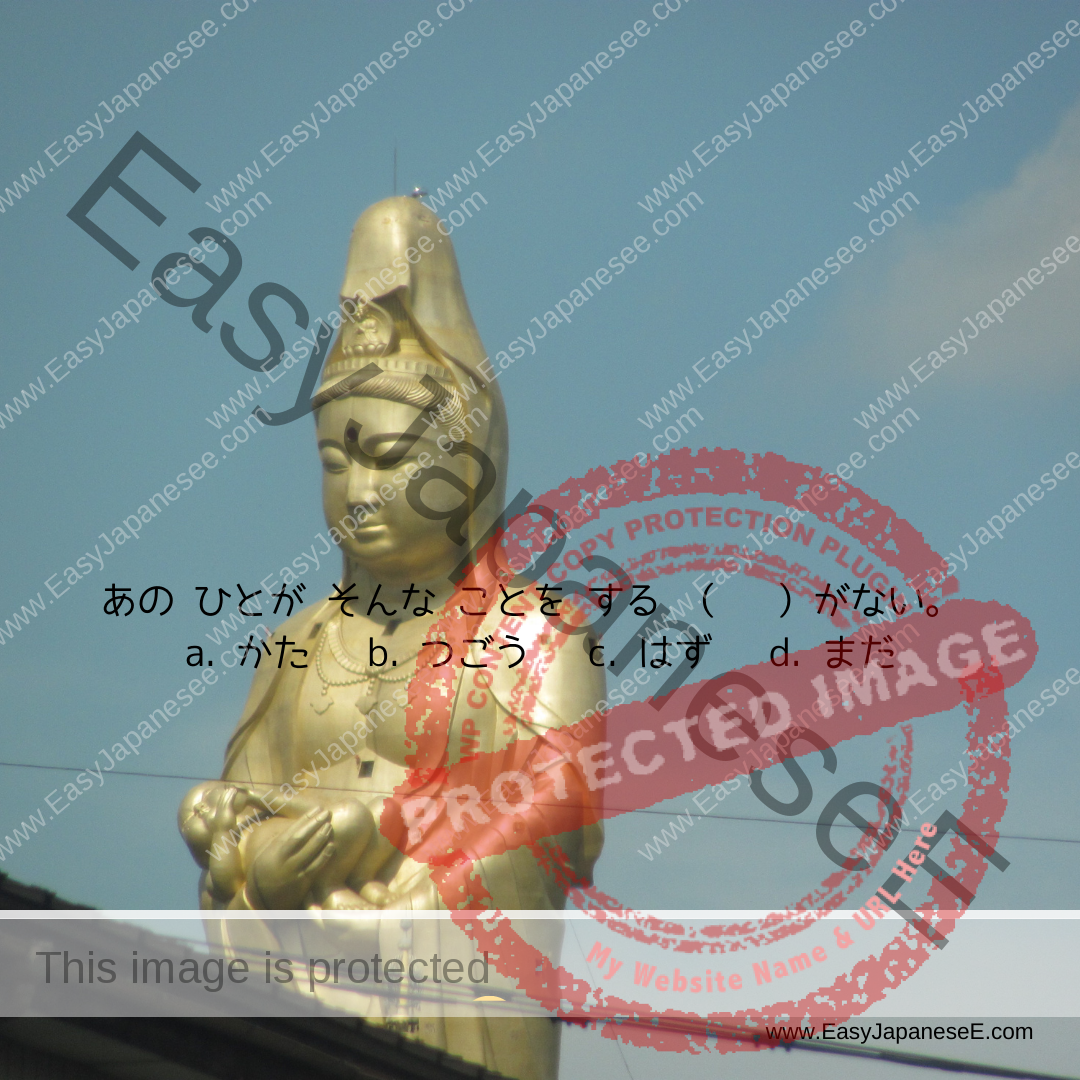
~はずがない expresses a belief that something will NOT happen. It can be used with a negative adjective/verb to express a strong belief that something WILL happen
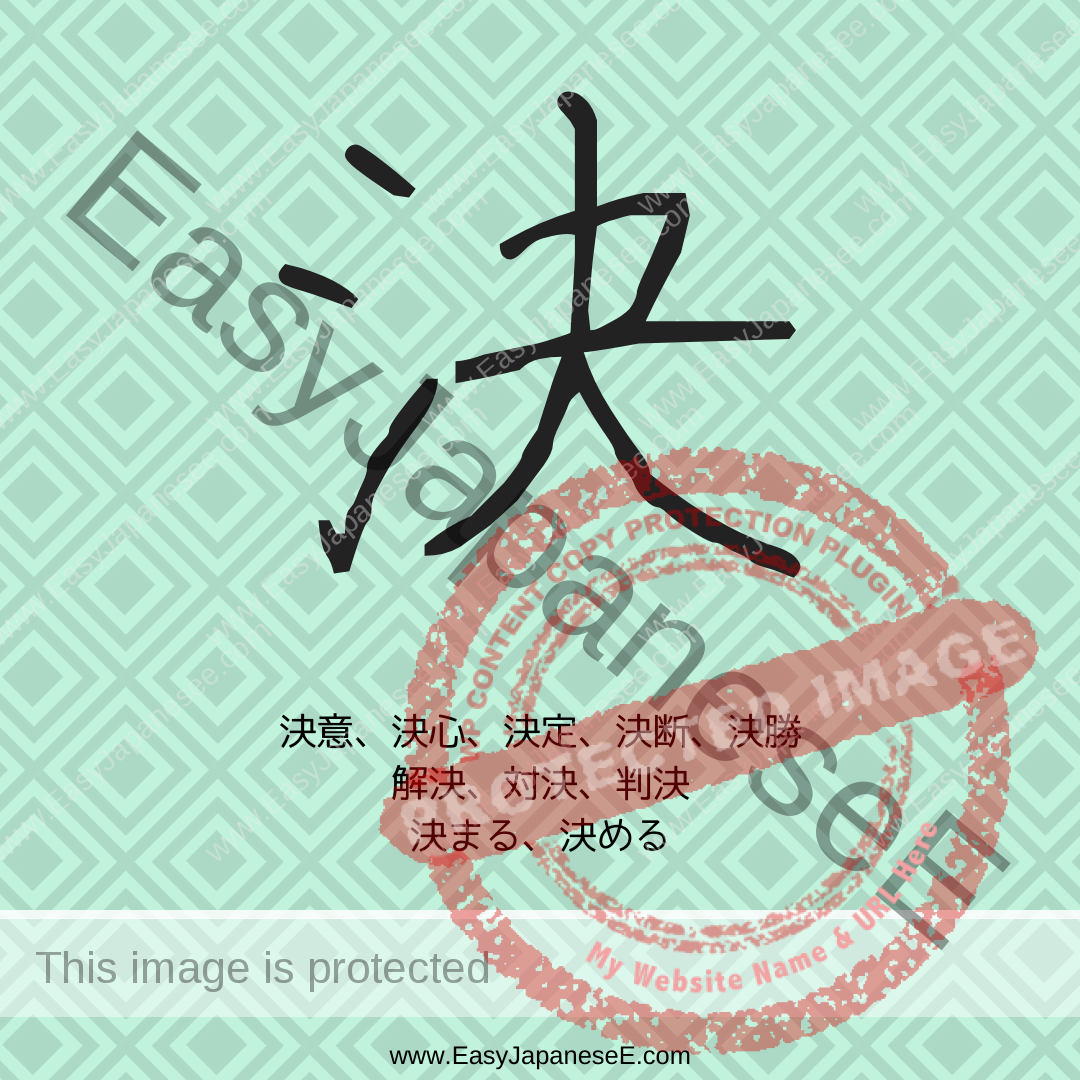
This week’s #kanji is #決. It is made of its semantic element of #さんずいへん(氵)and its phonetic element of 夬.氵 shows…

What does あのパーティーではかなり足(あし)が出(で)たらしい mean? The literal meaning of 足(あし)が出(で)る is “for a foot to stick out” but when the expression…

どうして にほんごを べんきょうすることに したんですか。コメントして ください。 ~することにする means “…have decided to do ~.” So my question here is why have you…

やっとレポートを書き( )。a. おえた b. とまった c. とめた d. やんだ Yesterday, I talked about ~出(だ)す and ~始(はじ)める both of which mean…
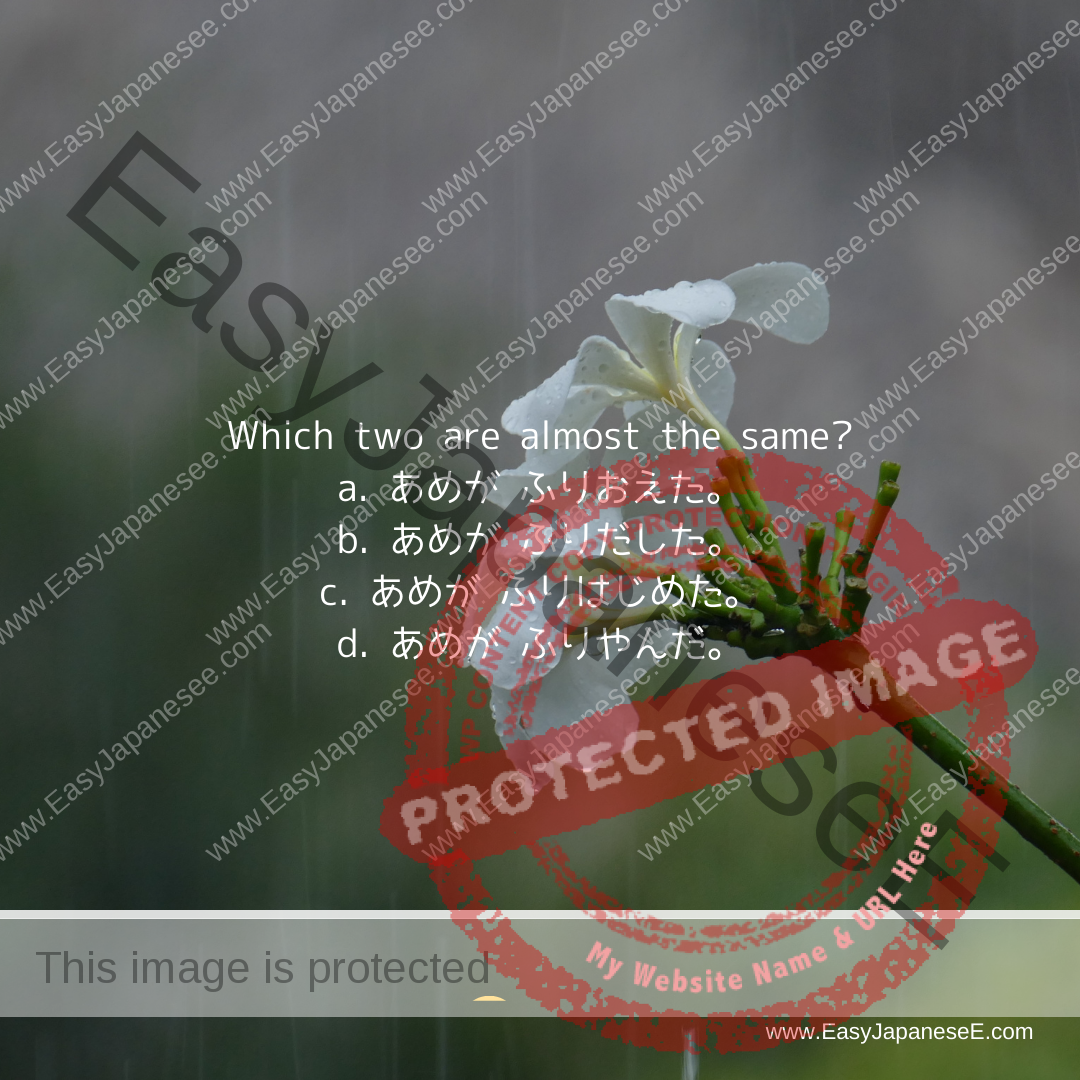
Which two are almost the same? a. あめが ふりおえた。b. あめが ふりだした。c. あめが ふりはじめた。d. あめが ふりやんだ。 [verb stem] + 出(だ)す and…

ひこうきと しんかんせんでは どっちのほう( )べんりですか。a. が b. の c. は d. を The intended meaning is between aeroplanes and shinkansen trains,…
